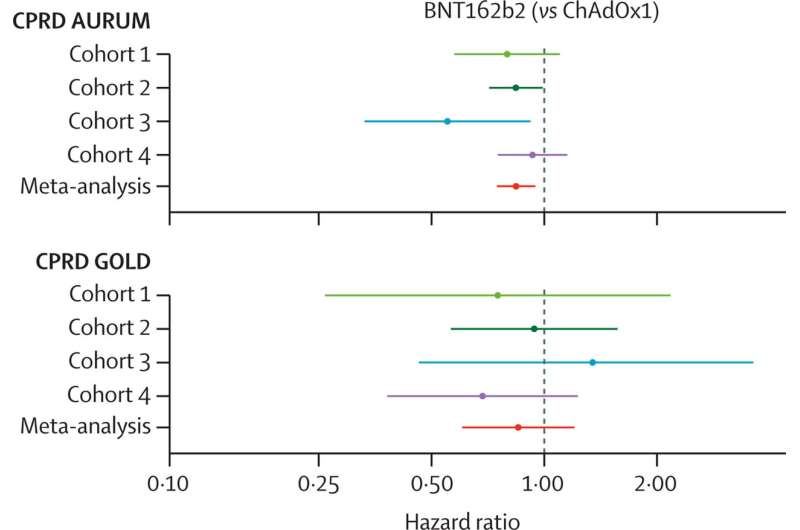This article has been reviewed according to Science X's editorial process and policies. Editors have highlighted the following attributes while ensuring the content's credibility:
fact-checked
peer-reviewed publication
trusted source
proofread
COVID-19 vaccines found effective in reducing risk of long COVID symptoms

A recent study has revealed the effectiveness of COVID-19 vaccines in preventing long COVID.
While vaccines have proved effective in preventing severe COVID-19, their impact on preventing long-term symptoms has not yet been fully understood. But a research team at NDORMS (Nuffield Department of Orthopedics, Rheumatology, and Musculoskeletal Sciences), University of Oxford has found that vaccination against COVID-19 consistently reduced the risk of long COVID symptoms.
Dani Prieto-Alhambra, Professor of Pharmaco- and device epidemiology, who led the study explained, "Vaccines against COVID-19 were rapidly developed to tackle the pandemic and to date eight vaccines have received authorization from international regulators including EMA and MHRA, with billions of doses delivered to date.
"These vaccines proved to be highly effective in preventing severe COVID-19, but it's known that around 1 in 10 people suffer from persistent symptoms, what we call long COVID. We wanted to assess if COVID vaccines had any impact on long COVID symptoms, and obtained funding from the National Institute for Health and Care Research (NIHR) to conduct a study to research this."
Published in The Lancet Respiratory Medicine, the study conducted extensive analyses using primary care electronic health records from the U.K., Spain, and Estonia. The team examined data from more than 20 million vaccinated and unvaccinated individuals and identified cases of long COVID based on specific criteria defined by the WHO (World Health Organization). The study focused on adults who were registered for at least 180 days in each respective country.
Across the different cohorts analyzed, the researchers observed a significant decrease in the occurrence of long COVID among vaccinated individuals compared to those who were unvaccinated.
Dr. Annika Jodicke, senior pharmacoepidemiologist and study co-lead, said, "We were able to demonstrate how both vaccines prevented the development of persistent COVID symptoms. Additionally, we compared different vaccinations and found that the BNT162b2 vaccine (BioNTech/Pfizer) provided better protection against long COVID compared to the ChAdOx1 vaccine (Oxford/AstraZeneca)."
Dr. Marti Catala, Senior Data Scientist and lead author of the manuscript, added, "Thanks to our international collaborations, we replicated our analyses using data from Spain and Estonia. Our findings were consistent across the three countries and many different populations, emphasizing the critical role that vaccination plays in protecting individuals from the long-term consequences of COVID-19."
More information: Martí Català et al, The effectiveness of COVID-19 vaccines to prevent long COVID symptoms: staggered cohort study of data from the UK, Spain, and Estonia, The Lancet Respiratory Medicine (2024). DOI: 10.1016/S2213-2600(23)00414-9




















